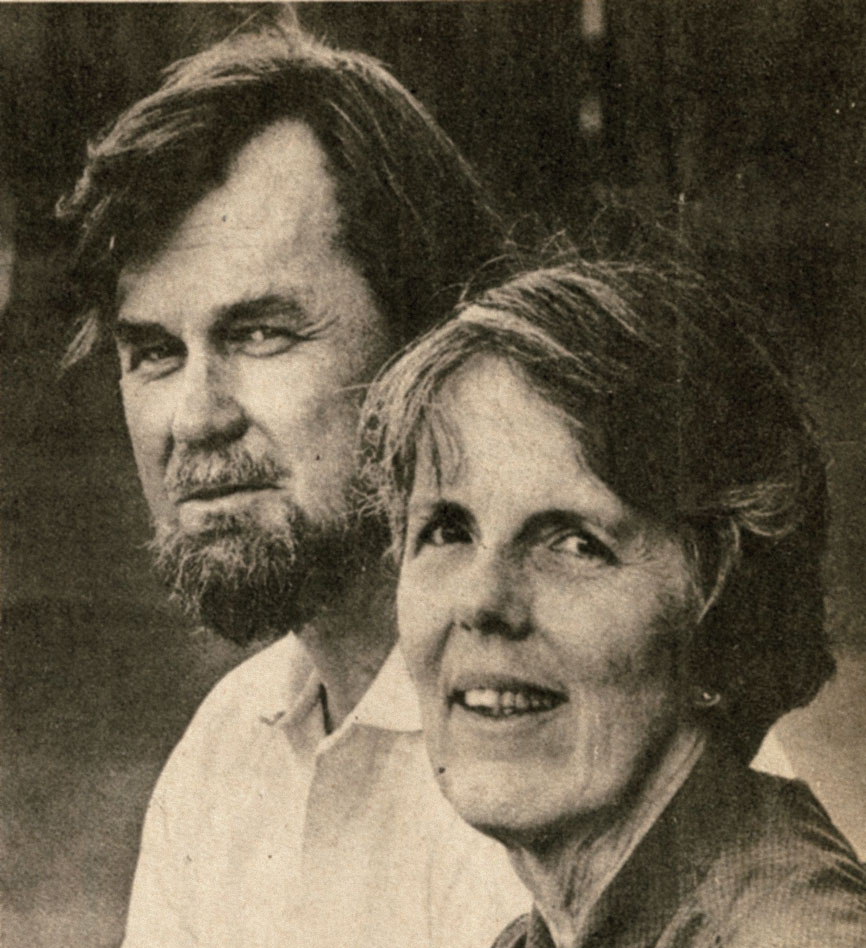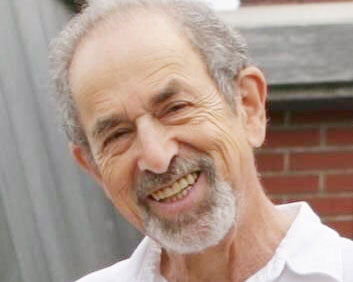Anthropologist revolutionized field of sociolinguistics
Dell Hathaway Hymes ’50

Dell and Virginia Hymes
Dell Hathaway Hymes ’50, November 13, 2009, in Charlottesville, Virginia, from kidney failure and Alzheimer's disease.
An anthropologist and linguist of international renown, Dell was a seminal figure in the fields of both sociolinguistics and ethnopoetics, which he more or less invented. Ironically, his academic career was nearly derailed by the Korean War: when he was a freshman at Reed he was drafted into the army and sent to Korea, where he worked as a decoder. Fortunately, he was later able to return to Reed and studied under legendary anthropology professor David French ’39 [1947–88] and his wife Kay Story French [anthropology 1981–2006], who introduced him to the people of the Warm Springs Reservation in Central Oregon. The introduction sparked Dell's passion for anthropology, as well as friendships with members of the Wasco, Wishram, and Sahaptin peoples that he maintained throughout his lifetime.
Dell's principal work lay in the language, culture, and folklore of Native Americans, particularly in the Pacific Northwest. He also helped found the field of sociolinguistics, which examines how social class and culture affect language-work closely related to his commitment to social justice. “I am always interested in combating elitism and narrowness and the playing of 'Western mind games' (as one friend once put it) at the expense of the rest of the world,” he wrote. “The justification for the existence of anthropology is to find out about the world—not produce third-rate philosophers.” Language needed to be studied as a social phenomenon, he insisted, embedded in cultural context, rather than as a self-sufficient, isolated grammatical system. Dell's work greatly influenced the worldwide study of forms and meanings in indigenous oral traditions. He developed a technique to assist in analyzing speech, known by the mnemonic SPEAKING (Setting, Participants, Ends, Act Sequence, Key, Instrumentalities, Norms, Genre). He also pioneered the anthropological cross-cultural analysis of the rhythms and metric rules of speech and narrative, a field he named ethnopoetics.
After earning a BA at Reed in anthropology and literature, Dell went to Indiana University, where he met fellow anthropologist and folklorist Virginia M. Dosch; they married in 1954. Dell returned to Warm Springs that same year, and completed his doctoral thesis, The Language of Kathlamet Chinook, a grammar based on texts published by Franz Boas. He taught social anthropology at Harvard, UC Berkeley, and the University of Pennsylvania, where he was professor of folklore, linguistics, sociology, and education. There he conceived of a monumental project, a comprehensive linguistic dictionary of Kiksht, the language of the Wasco tribe. He worked on this undertaking for many years, recruiting several other scholars (including David French) to assist. Progress was slow, however; the dictionary remains unfinished and the number of Kiksht speakers has now dwindled to three.
Dell served as dean of the Graduate School of Education at Penn for many years until 1987, when he accepted a position at the University of Virginia at Charlottesville. He remained there until his retirement in 1998, and was named Commonwealth Professor of Anthropology & English, Emeritus in 2000. He was a resident fellow at the Center for Advanced Study in the Behavioral Sciences near Stanford and at the University of Cambridge; a life fellow of the American Academy of Arts and Sciences; and a member of the British Academy. He served as president of the American Anthropological Association, the American Association for Applied Linguistics, the American Folklore Society, and the Linguistic Society of America. He was author, coauthor, or editor of more than 700 publications and founding editor of the journal Language in Society. He also published Language in Culture and Society (1964), for decades the definitive textbook in sociolinguistics; Foundations in Sociolinguistics:An Ethnographic Approach (1974); In Vain I Tried to Tell You: Essays in Native American Ethnopoetics (1981); and Now I Know Only So Far: Essays in Ethnopoetics (2003).
Some of Dell's memories of Reed were recorded in his oral history interview with Suzanne Wong Scollon ’69 in 2004. He cited as key influences professors David French and Lloyd Reynolds and classmates Moshe Lenske ’50 and Gary Snyder ’51. His cousins Linden Bowman ’35 and Ellen Bowman Martin ’35 also attended Reed.
Dell maintained his connection to the Pacific Northwest, spending summers at his cabin in Rhododendron, Oregon, for 30 years. From his public obituary, we read that Dell was a man of strong political views, a lover of music, an amateur pianist, an excellent joke-teller, and was knowledgeable in many subjects-especially, in later years, theology and the history of religion. He attended St. Paul Memorial Church and Peace Lutheran Church in Charlottesville.
Survivors include his wife, two sons and two daughters, five grandchildren, two great-grandchildren, and a brother.
"The Way We Speak," Reed magazine, winter 2008
Appeared in Reed magazine: March 2010





![Photo of Prof. Marvin Levich [philosophy 1953–94]](https://www.reed.edu/reed-magazine/in-memoriam/assets/images/2022/LTL-levich1.jpg)
![Photo of President Paul E. Bragdon [1971–88]](https://www.reed.edu/reed-magazine/in-memoriam/assets/images/2020/Bragdon.jpg)
![Photo of Prof. Edward Barton Segel [history 1973–2011]](https://www.reed.edu/reed-magazine/in-memoriam/assets/images/2020/Segel.jpg)








































































